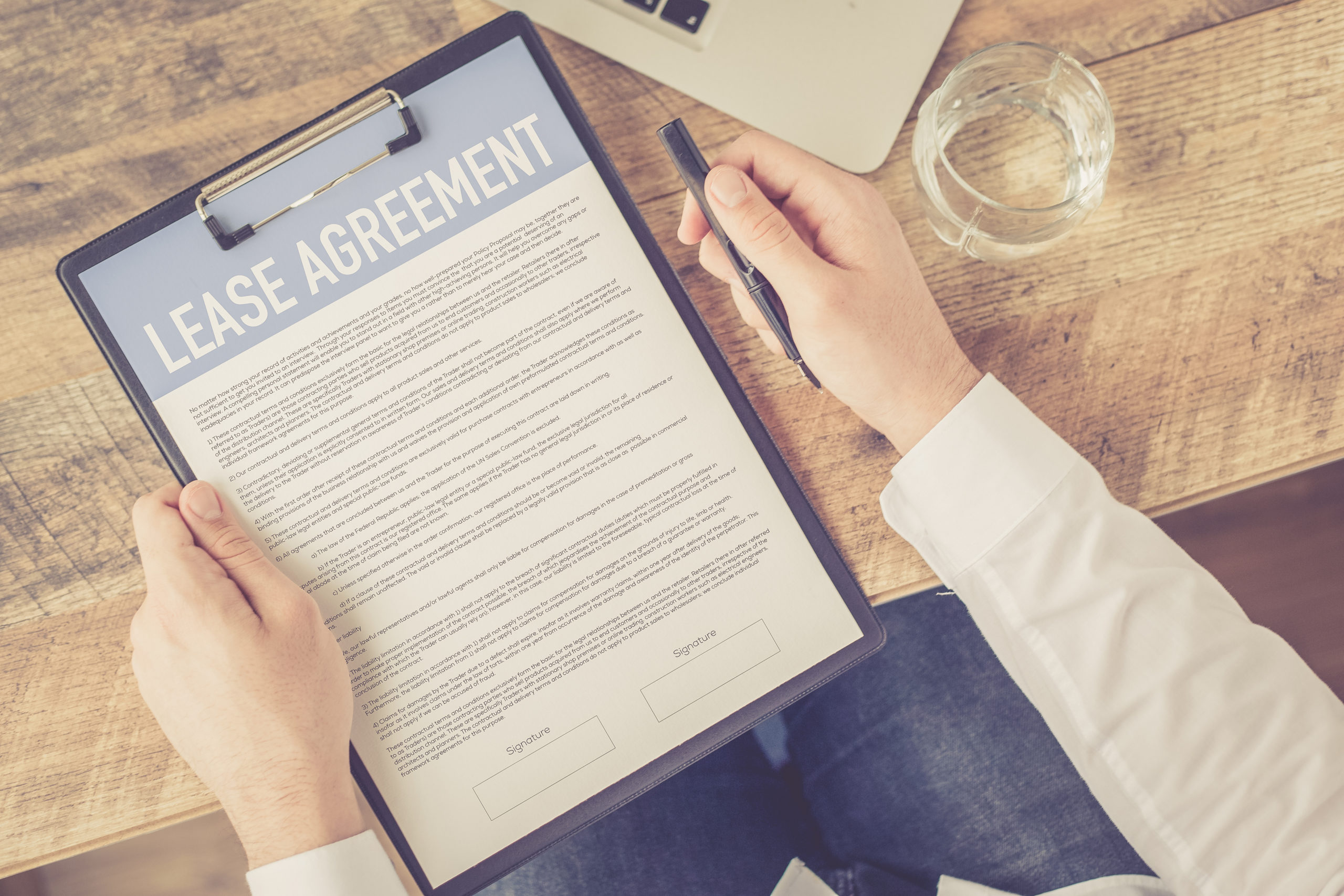August 20th, 2020
COVID-19 Lease Amendments
Posted in: Business Law Featured Real Estate Law Tagged: Andrew L. Schwartz, Coronavirus
Author: Andrew L. Schwartz

It has been nearly six months since the District of Columbia, Maryland, and Virginia declared states of emergency in response to the spread of the novel coronavirus, COVID-19. Though local jurisdictions have put in place plans for phased re-openings of essential and non-essential businesses, the current health crisis and economic effects of COVID-19 continue to significantly impact the operations of general office and retail businesses. Consequently, both office and retail tenants will increasingly need some type of relief from their rent and other obligations under their leases, whether in the form of a rent abatement, rent deferral, or public aid.
Depending on the particular circumstances, a lease amendment may be in the best interest of both a landlord and a tenant. Certainly, a landlord is not well-served to enforce a lease that will only result in the bankruptcy of its tenant, particularly when the prospect of reletting space is uncertain during the current pandemic. At the same time, a landlord must balance this consideration with its obligations under any mortgage that may encumber the landlord’s property. Certain jurisdictions, such as the District of Columbia, have implemented deferral programs that allow landlords to defer mortgage payments, provided, a landlord must grant a proportionate rent deferral to its tenants. This may provide the needed relief for a landlord and tenant in certain cases, but this deferral period is only for up to 90 days.
Historically, the terms of a commercial lease have largely been left untouched by factors beyond the four corners of the document. However, in recent months, commercial lease negotiation has changed dramatically due to COVID-19. Now, parties are closely reading and negotiating what used to be boilerplate provisions, and local jurisdictions continue to pass legislation that may render the terms of a lease, including rent schedules, unenforceable. Given this changing landscape of lease negotiation, whether a landlord or tenant, there are new considerations to be mindful of when negotiating a lease amendment.
In any lease amendment negotiation, it is, of course, important to consider the existing terms of the lease. In most cases, a lease will include a force majeure provision, which excuses a party’s performance where performance is interrupted, prevented, or delayed due to circumstances beyond that party’s control. While force majeure provisions are not all the same, the language of a force majeure may provide a basis to assert that the effects of COVID-19, including government-mandated closures, constitute a force majeure event that excuse a tenant’s obligation to pay rent. Equally, a tenant may assert that the effects of COVID-19 have made performance under its lease impossible, or have frustrated the underlying reason for the tenant’s entering into the lease, and, therefore, the tenant is discharged and released from its obligations under the lease. Practically speaking, it may not be in a tenant’s best interest to litigate the impact of these doctrines on a tenant’s rent obligations. Still, the availability of these doctrines may equip a tenant with newfound bargaining power that results in a signed lease amendment that is more favorable to the tenant.
With that said, in most commercial leases, landlord’s expressly carveout a tenant’s monetary obligations so that a tenant is expressly required to pay rent, even during a force majeure event. Not only does this eliminate the force majeure clause as a source of relief, but this may be construed as the tenant assuming the risk of unforeseen circumstances, which could also impede impossibility and frustration of purpose as available defenses.
Since the terms of most commercial leases are written in the favor of landlords, state and local governments have stepped in with mandated protections for tenants, including eviction moratoriums, restrictions on late fees, and rent deferral mandates. In the District of Columbia, the D.C. Council passed legislation that, in part, requires landlords to establish and give tenants notice of a program to apply for a rent payment plan, whereby a landlord must offer to any eligible tenant a payment plan that defers “gross rent” that comes due during the public health emergency and the one-year period after the public health emergency ends. To be eligible for a payment plan, a tenant must provide evidence demonstrating financial hardship resulting from the public health emergency. Critically, though, this is only available to all commercial retail tenants, whereas commercial office tenants that lease less than 6,500 square feet must look for other sources of relief.
For landlords, these recent enactments have led to countless questions. In the case of the D.C. rent payment plans, the law mandates certain aspects– e.g., the plan must provide for rent payments in minimum monthly installments covering a period of no less than one year, and it must waive any fees or penalties that would have otherwise been payable under the original lease. However, the plan must cover rent that comes due during the public health emergency and for one year after the public health emergency ends (or the tenancy ends, if sooner). This creates a challenge for landlords to determine the appropriate amount of rent to defer since the expiration of the public health emergency is a moving target. Most recently, the public health emergency was extended through October 9, 2020.
In an effort to ensure compliance with these laws, many landlords are offering lease amendments that are more advantageous to tenants than what the legal mandates require. By way of illustration, D.C. landlords of certain retail establishments have agreed to accept a percentage of gross sales arising from the leased premises rather than the base rent amount set forth under the lease. In these cases, the landlord is providing a rent abatement (essentially free rent) by reducing rent obligations – as opposed to a rent deferral (tacking on rent payments to the monthly rent at a later date or amortizing the missing rent over a period of time), which is the extent of the relief mandated for D.C. rent payment plans. This is more beneficial to a tenant’s bottom line. However, these types of concessions are often associated with other conditions. In certain cases, a landlord may require that, as a condition to the rent abatement, the tenant apply all or a portion of funds from any federal, state or local relief associated with COVID-19, such as paycheck protection loan proceeds, towards the payment of the base rent amount stated under the lease. Additionally, there may be a condition that a tenant must waive all claims for lost revenue, business interruption, and constructive eviction due to COVID-19 and/or any government mandated closures/restrictions. If courts determine that such a waiver is enforceable, it may foreclose the availability of relief provided by existing and subsequent legislative enactments.
In cases where a lease amendment provides relief that does not track the relief set forth under applicable law – even if the relief is greater that what the law requires – the lease amendment should be prepared and negotiated carefully to evidence the landlord’s full and complete compliance with applicable law. Otherwise, a tenant defaulting under a lease amendment may later assert that the landlord failed to properly follow the law, or that the tenant was under duress when it entered into the lease amendment, as a way to get a second chance at rent relief. Worth noting, in the District of Columbia, compliance with the mandated rent relief program is made a condition precedent to an eviction action.
Aside from mandated rent payment plans, the District of Columbia and other local jurisdictions have put in place freezes on rent increases as well, even if the rent increase is in accordance with a written lease in effect prior to the public health emergency. In the District of Columbia, rent increases for commercial retail tenants are prohibited during the public health emergency and for a 30-day period thereafter. Baltimore City, Howard County, and Salisbury have also enacted similar rent-increase freezes for residential tenancies. Certain Maryland landlords have responded by filing a lawsuit in the United States District Court for the District of Maryland (Northern Division) challenging these enactments as, among other things, unlawful government takings and an intentional interference with contractual relations.
Although these recent legislative enactments in response to COVID-19 are plenty to consider, it is also important not to lose sight of the typical considerations when entering into a lease amendment. As always, before making any amendments to a lease, a landlord must consider the terms of any mortgage and other loan documents, including subordination and non-disturbance agreements, which may require lender consent. Where lender consent is required but not obtained, entering into a lease amendment may cause a default under a mortgage, and may even trigger a recourse carveout obligation under a personal guaranty. Furthermore, since landlords will likely approach each amendment on a case-by-case basis, it is worth considering confidentiality as a component to any lease amendment, subject to typical exceptions where disclosure may be required by law.
As local jurisdictions are passing additional legislation and the landscape of commercial lease negotiation continues to change, it is recommended that landlords and tenants consult with their attorney in order to understand their obligations and liabilities under their respective leases and the details of the recent legislation enacted to deal with the impact of COVID-19 on commercial leases.
You can find more on issues affecting businesses and individuals in our COVID-19 Resource Center.







